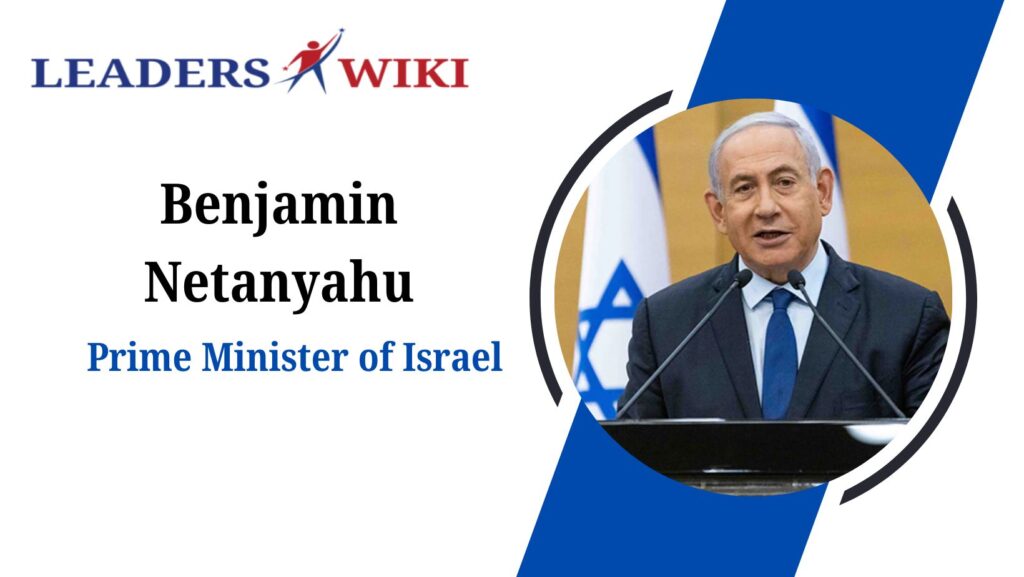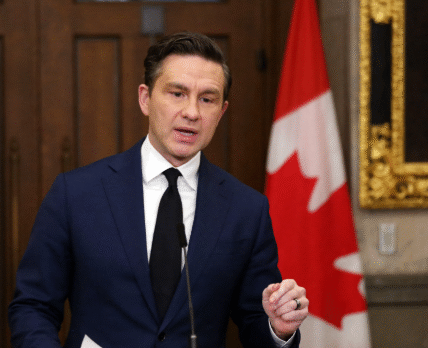Early Life and Political Career
Benjamin Netanyahu was born on October 21, 1949, in Tel Aviv, Israel. He is the son of Benzion Netanyahu, a noted historian. In 1963, his family moved to Philadelphia in the United States. Netanyahu enlisted in the Israeli military in 1967, serving as a soldier in the elite special operations unit Sayeret Matkal. He was part of the team that rescued a hijacked jet plane at the Tel Aviv airport in 1972. Netanyahu later studied at the Massachusetts Institute of Technology (MIT), earning an MBA in 1976, though he took time off in 1973 to fight in the Yom Kippur War. After his brother Jonathan died leading the successful Entebbe raid in 1976, Benjamin founded the Jonathan Institute, which sponsored conferences on terrorism.

Netanyahu held several ambassadorship positions before being elected to the Knesset (Israeli parliament) as a member of the Likud party in 1988. He served as deputy minister of foreign affairs (1988–91) and as a deputy minister in Prime Minister Yitzhak Shamir’s cabinet (1991–92). In 1993, Netanyahu won the leadership of the Likud party, succeeding Shamir. He became known for his opposition to the 1993 Israel-PLO peace accords and the resulting Israeli withdrawals from the West Bank and Gaza Strip.
First Term as Prime Minister (1996–99)
The Labour Party’s electoral appeal weakened after the assassination of Prime Minister Yitzhak Rabin in November 1995 and a series of suicide bombings by Muslim militants in early 1996. Netanyahu narrowly won the May 29, 1996 elections against Shimon Peres and became Israel’s youngest prime minister on June 18, 1996.
During his first term, Netanyahu’s administration faced unrest. Relations with Syria deteriorated, and his decision in September 1996 to open an ancient tunnel near Al-Aqsa Mosque led to intense Palestinian protests and violence. In 1997, he agreed to withdraw Israeli troops from most of Hebron but later announced the establishment of new Jewish settlements in contested areas. In 1998, Netanyahu and Palestinian leader Yasser Arafat signed the Wye River Memorandum, which placed significant portions of the West Bank under Palestinian control. However, right-wing groups in Israel opposed the agreement, leading to the dissolution of Netanyahu’s government and new elections in 1999, in which he was defeated by Ehud Barak.
Between Terms
Following his defeat, Netanyahu was succeeded by Ariel Sharon as head of Likud but remained an influential figure. He served as foreign minister (2002–03) and finance minister (2003–05) in Sharon’s government. After Sharon left Likud to form the Kadima party, Netanyahu was elected leader of Likud but lost the 2006 elections.
Second Stint as Prime Minister (2009–21)
In the February 2009 elections, Likud won 27 Knesset seats, just one behind Kadima. Netanyahu formed a coalition government and was sworn in on March 31, 2009. In June 2009, he expressed support for an independent Palestinian state under certain conditions, which were quickly rejected by Palestinian leaders. The peace process stalled, and Netanyahu took a hard line on Iran’s nuclear program and the Arab Spring uprisings.
Domestically, Netanyahu faced economic discontent and large street protests in 2011. In 2013, he returned to power with a coalition closer to the political center. In 2014, he launched a military operation in the Gaza Strip, which faced international criticism for high Palestinian casualties. Disagreements within his coalition led to early elections in 2015, which Netanyahu won decisively.
Indictment and Coalition Troubles
Netanyahu’s fourth term was marked by corruption investigations. In February 2018, police recommended charges of bribery and fraud. Despite denying the allegations and refusing to step down, his coalition partners began to withdraw support. In 2019, early elections were called, leading to three consecutive elections before a government was formed. Netanyahu eventually formed an emergency unity government with Benny Gantz during the COVID-19 pandemic, but the government was short-lived.
Electoral Comeback in 2022 and Reliance on the Far Right
In early 2022, Netanyahu’s corruption trial faced delays due to revelations about police misconduct. Despite his legal troubles, Netanyahu returned to power in November 2022 with a right-wing coalition that included far-right ministers. Controversial plans to amend the judiciary led to widespread protests and strikes.
Israel-Hamas War
On October 7, 2023, Hamas launched a deadly assault on Israel, leading to Netanyahu forming an emergency war cabinet with Benny Gantz. Despite initial support, Netanyahu faced severe criticism for his handling of the situation. As the war continued, Netanyahu’s popularity declined, and his relationship with international leaders, including U.S. President Joe Biden, became strained.
By late May 2024, pressure on Netanyahu increased, with growing protests and international legal challenges. The International Criminal Court’s chief prosecutor announced plans to seek arrest warrants for Netanyahu and others for war crimes, which Netanyahu denounced.
Conclusion
Benjamin Netanyahu’s political career has been marked by significant achievements and controversies. As Israel’s longest-serving prime minister, he has played a crucial role in shaping the country’s domestic and foreign policies. Despite facing numerous challenges and legal battles, Netanyahu remains a central figure in Israeli politics.





